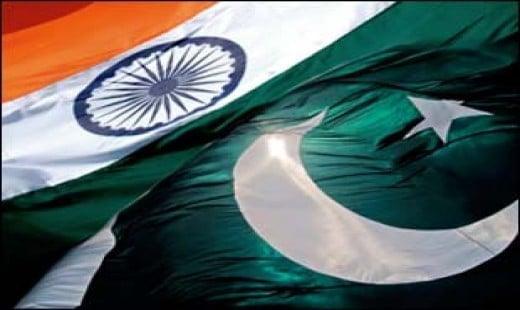The former general chief of the Indian army (R) Manoj Naravane spoke out against war, calling for diplomatic efforts to solve long -standing problems such as cashmere, in a rare position reflecting an increasing dissent in India.
While the votes of Indian society are increasingly criticizing Prime Minister Narendra Modi during the Pakistan-Indian conflict, General (R) Naravane described the questions raised on the ceasefire as “irresponsible”.
“The solution to all current disputes lies in dialogue,” he said, saying that Pakistan and India should also resolve the cashmere issue by negotiations instead of military confrontation.
His remarks correspond to the previous offers of US President Donald Trump to mediate between the two countries of the cashmere.
“War is a serious and bitter reality – not a romantic story or a Bollywood film,” said Naravane. “As a soldier, my first preference will always be diplomacy.”
He stressed that the consequences of the war extend beyond the battlefield, which has an impact on innocent civilians, in particular children, who suffer from a post-traumatic stress disorder (SSPT).
“Those who recommend war should also consider the suffering of affected families,” he added. “National security is not only the responsibility of the government or the military, but a shared duty of each citizen.”
Military analysts noted that the declarations of the former army chief clearly suggest that war is not a solution and that diplomatic channels should be prosecuted to ensure lasting peace, especially on the issue of cashmere.
They stressed that the emotional and humanitarian costs of the war should not be ignored.
The remarks of the former general chief of the Indian army (R) Manoj Naravane are involved in an increase in the interior criticism of management by the Prime Minister Naretra Modi with Pakistan, in particular following the collapse of “the Sindoor operation”.
The operation, which aimed to assert the military advantage of India, ended with a American basic ceasefire that the opposition parties qualified as diplomatic and strategic embarrassment.
Shiv Sena (UBT) led the political output, the senior Sanjay Raut leader demanding the resignations of Modi and Minister of the Interior Amit Shah.
Raut described the failure of the operation and the cease-fire which followed a “national humiliation”, insisting that Modi had lost moral authority to lead the country. He also urged the government to immediately summon the Parliament for a detailed discussion on the operation, the cease-fire agreement and the April 22 terrorist attack which triggered the climbing.
Congress head, Rahul Gandhi, has echoed requests, calling for an all-party meeting and criticizing decision-making of the Modi administration. The president of the Congress Mallikarjun Kharge questioned the lack of strategic clarity and asked the government to present a full account to the nation. AAP spokesperson Priyanka Kakkar criticized the dependence on foreign mediation, warning that India’s diplomatic autonomy could be undermined.
While opposition figures through the spectrum expressed their concern, some as the deputy for the Shashi Tharoor congress adopted a more nuanced position. Tharoor described the ceasefire as a “necessary recalibration” to prevent deeper conflicts, even if the strategic objectives were not fully achieved. The Manoj JHA of RJD, however, warned against foreign intervention to become a precedent, supporting Gandhi’s call for a special parliament session.




